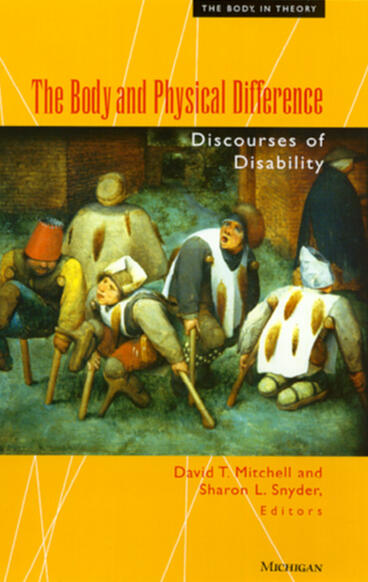The Body and Physical Difference
Discourses of Disability
Groundbreaking perspectives on disability in culture and the arts that shed light on notions of identity and social marginality
Description
For years the subject of human disability has engaged those in the biological, social and cognitive sciences, while at the same time, it has been curiously neglected within the humanities. The Body and Physical Difference seeks to introduce the field of disability studies into the humanities by exploring the fantasies and fictions that have crystallized around conceptions of physical and cognitive difference. Based on the premise that the significance of disabilities in culture and the arts has been culturally vexed as well as historically erased, the collection probes our society's pathological investment in human variability and "aberrancy." The contributors demonstrate how definitions of disability underpin fundamental concepts such as normalcy, health, bodily integrity, individuality, citizenship, and morality--all terms that define the very essence of what it means to be human.
The book provides a provocative range of topics and perspectives: the absence of physical "otherness" in Ancient Greece, the depiction of the female invalid in Victorian literature, the production of tragic innocence in British and American telethons, the reconstruction of Civil War amputees, and disability as the aesthetic basis for definitions of expendable life within the modern eugenics movement. With this new, secure anchoring in the humanities, disability studies now emerges as a significant strain in contemporary theories of identity and social marginality.
Moving beyond the oversimplication that disabled people are marginalized and made invisible by able-ist assumptions and practices, the contributors demonstrate that representation is founded upon the perpetual exhibition of human anomalies. In this sense, all art can be said to migrate toward the "freakish" and the "grotesque." Such a project paradoxically makes disability the exception and the rule of the desire to represent that which has been traditionally out-of-bounds in polite discourse.
The Body and Physical Difference has relevance across a wide range of academic specialties such as cultural studies, the sociology of medicine, history, literature and medicine, the allied health professions, rehabilitation, aesthetics, philosophical discourses of the body, literary and film studies, and narrative theory.
David T. Mitchell is Assistant Professor of English, Northern Michigan University. Sharon L. Snyder teaches film and literature at Northern Michigan University.
David T. Mitchell is Associate Professor of Disability and Human Development at the University of Illinois-Chicago.
Sharon L. Snyder is Assistant Professor of Disability and Human Development at the University of Illinois-Chicago.

